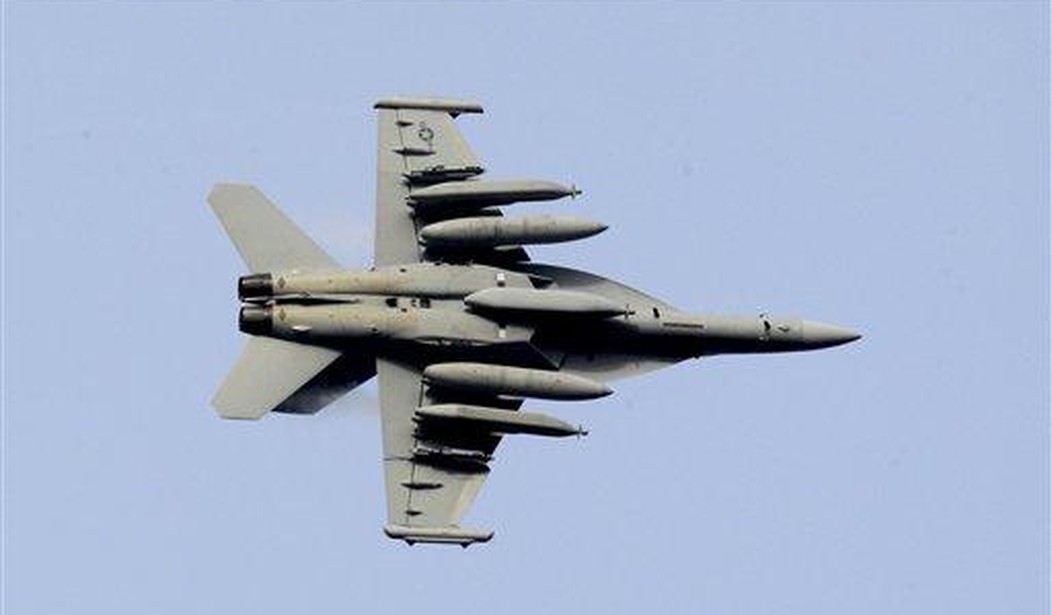This week, SU-24 fighter-bombers buzzed a U.S. destroyer in the Baltic Sea. The Russian planes carried no missiles or bombs.
Message: What are you Americans doing here?
In the South China Sea, U.S. planes overfly, and U.S. warships sail inside, the territorial limits of islets claimed by Beijing.
In South Korea, U.S. forces conduct annual military exercises as warnings to a North Korea that is testing nuclear warheads and long-range missiles that can reach the United States.
U.S. warships based in Bahrain confront Iranian subs and missile boats in the Gulf. In January, a U.S. Navy skiff ran aground on an Iranian island. Iran let the 10 U.S. sailors go within 24 hours.
But bellicose demands for U.S. retaliation had already begun.
Yet, in each of these regions, it is not U.S. vital interests that are threatened, but the interests of allies who will not man up to their own defense duties, preferring to lay them off on Uncle Sam.
And America is beginning to buckle under the weight of its global obligations.
And as we have no claim to rocks or reefs in the South China Sea -- Vietnam, Taiwan, Malaysia, Brunei and the Philippines do -- why is this our quarrel?
If these rocks and reefs are so vital they are worth risking a military clash with China, why not, instead, impose tariffs on Chinese goods? Let U.S. companies and consumers pay the price of battling Beijing, rather than U.S. soldiers, sailors and airmen.
Recommended
Let South Korea and Japan build up their forces to deal with the North, and put Beijing on notice: If China will not halt Kim Jong Un's nuclear weapons program, South Korea and Japan will build their own nuclear deterrents. Half a century ago, Britain and France did.
Why must we forever deter and, if need be, fight North Korea?
And why is the defense of the Baltic republics and East Europe our responsibility, 5,000 miles away, not Germany's, whose economy is far larger than that of Russia?
Even during the darkest days of the Cold War, U.S. presidents refused to take military action in Hungary, Czechoslovakia or Poland.
When Moscow intervened there, the U.S. did nothing. When did the independence of Eastern Europe become so vital an interest that we would now risk war with a nuclear-armed Russia to ensure it?
Under Article 5 of NATO, an attack upon any of 28 allied nations is to be regarded as an attack upon all.
But is this the kind of blank check we should give Turkey's Recep Tayyip Erdogan, who, a few months back, ordered a Russian fighter plane that crossed into Turkish territory for 15 seconds be shot down?
Do we really want to leave to this erratic autocrat the ability to drag us into a war with Russia?
When Neville Chamberlain in 1939 handed a war guarantee to a junta of Polish colonels, who also had an exaggerated opinion of their own military power and prowess, how did that work out for the Brits?
America should not write off the Baltic Republics or Eastern Europe. But we should rule out any U.S.-Russian war in Eastern Europe and restrict a U.S. response to Russian actions there to the economic and diplomatic. For the one certain loser of a U.S.-Russian conflict in Eastern Europe -- would be Eastern Europe.
As for Iran, the U.S. intelligence community, in 2007 and 2011, declared with high confidence that it had no nuclear weapons program.
Since the Iran nuclear treaty was signed, 98 percent of Iran's enriched uranium has been shipped out of the country; no more 20 percent enriched uranium is being produced; the Arak reactor that could have produced plutonium has been scuttled and reconfigured; and nuclear inspectors are crawling all over every facility.
Talk of Iran having a secret nuclear-bomb program and testing intercontinental missiles comes, unsurprisingly, from the same folks who assured us that Iraq had weapons of mass destruction.
The goal is the same: Stampede America into fighting another war, far away, against a nation they want to see smashed.
Since the end of the Cold War in 1991, this country has been steadily bled and slowly bankrupted. We are now as overextended as was the British Empire in the 1940s.
And like that empire, we, too, are being challenged by nations that seek to enlarge their place in the sun -- a resurrected Russia, China, Iran. And we are being bedeviled by fanatics who want us out of their part of the world, which they wish to remake according to the visions of their own faiths and ideologies.
Time for a reappraisal of all of the war guarantees this nation has issued since the beginning of the Cold War, to determine which, if any, still serve U.S. national interests in 2016. Alliances, after all, are the transmission belts of war.
This is not isolationism. It is putting our country first, and staying out of other people's wars. It used to be called patriotism.

























Join the conversation as a VIP Member